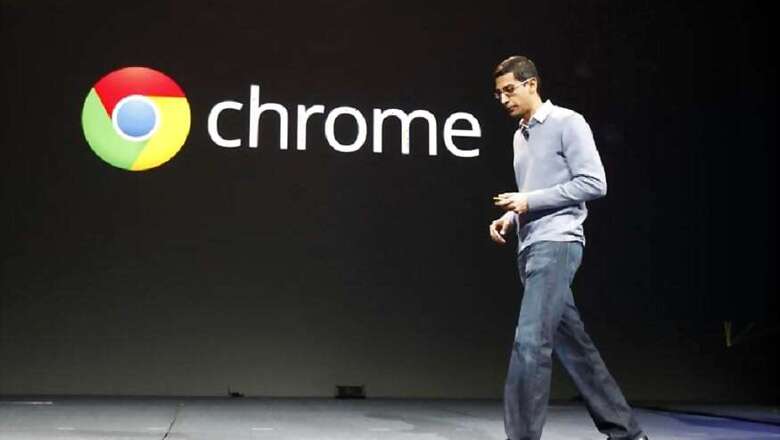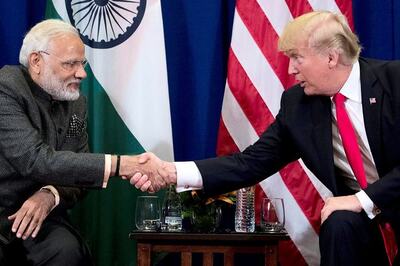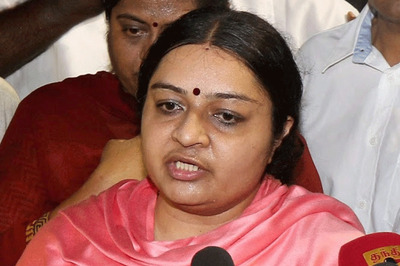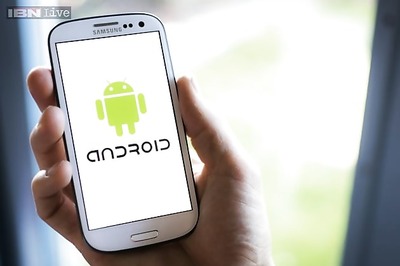
views
After a day of frantic activity which saw Alphabet Inc.'s Google being hit with a $5 billion fine by the European Commission (EC), the tech giant has responded saying that it will appeal the fine imposed. The verdict came after the EC decided that Google requires phone makers to pre-load Google Search and Google Chrome web browser on Android devices. This allowed Google to offer the Android operating system for free to phone makers, which in turn allowed them to keep the costs down. However, the EC reckons that there are then fewer web browser, search engine and operating system choices for the consumer.
The French Government spokesperson in an official statement to reporters in Paris said, "No-one is above the laws that have been laid down in common for all....Not Google, nor any other entity." Incidentally, the EC hasn't offered any suggestions on how Google should solve the app bundling violations.
However, this ruling could upset the balance that allowed Android to become so popular. Google, as expected to, has hit back strongly.
"In 2007, we chose to offer Android to phone makers and mobile network operators for free. Of course, there are costs involved in building Android, and Google has invested billions of dollars over the last decade to make Android what it is today. This investment makes sense for us because we can offer phone makers the option of pre-loading a suite of popular Google apps (such as Search, Chrome, Play, Maps and Gmail), some of which generate revenue for us, and all of which help ensure the phone 'just works', right out of the box. Phone makers don't have to include our services; and they're also free to pre-install competing apps alongside ours. This means that we earn revenue only if our apps are installed, and if people choose to use our apps instead of the rival apps," says CEO Sundar Pichai, in an official statement.
At present, Android phones are made by as many as 1,300 brands globally and offer more than 1 million downloadable apps on the Play Store, available on every Android device. A lot of this has been achieved because Google offers Android as a software package to phone makers for free, as long as certain Google apps are preloaded on the phones being sold-this gives the phone makers more flexibility to keep prices down. Thus the burgeoning affordable Android smartphone segment, globally.
Google also suggests that a typical Android phone user installs around 50 apps on their devices. Last year, according to Google's numbers, over 94 billion apps were downloaded globally from our Play app store, which included browsers such as Opera Mini and Firefox downloaded more than 100 million times and the UC Browser downloaded more than 500 million times. This means consumers, who wish for choice, generally tend to find their favorite apps instead of remaining shackled to the preloaded apps.
But what should really worry consumers is this hint by Pichai. "The free distribution of the Android platform, and of Google's suite of applications, is not only efficient for phone makers and operators-it's of huge benefit for developers and consumers. If phone makers and mobile network operators couldn't include our apps on their wide range of devices, it would upset the balance of the Android ecosystem. So far, the Android business model has meant that we haven't had to charge phone makers for our technology, or depend on a tightly controlled distribution model," he says.
This gentle hint at the 'balance' could indicate if Google's mobile advertising revenue gets hit because its apps are no longer pre-loaded on phones, chances are, it'll start charging phone makers a fee for the right to use the Android operating system in their phones. That could indeed spell the end of truly affordable Android phones, as prices will certainly go upwards because of phone makers passing on costs.




















Comments
0 comment